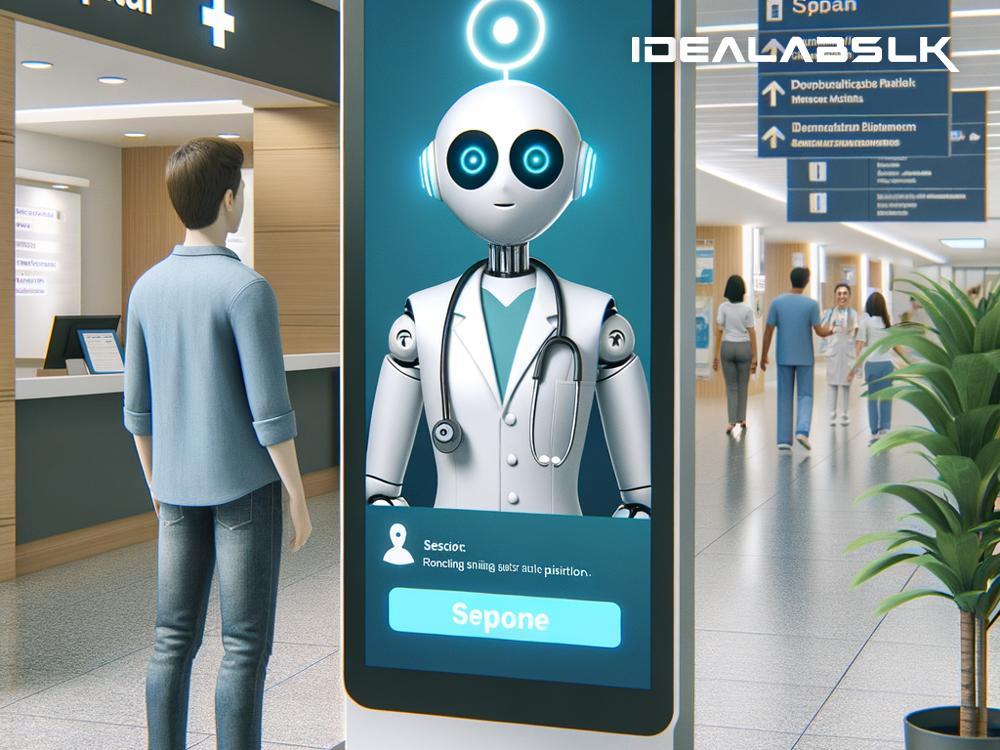Title: The Magic of AI Chatbots: Enhancing Patient Care and Cutting Down Hospital Wait Times
In today's fast-paced world, standing in long queues at the hospital or endlessly waiting for a doctor's appointment over the phone has become a tale of the old days. The introduction of AI chatbots in healthcare is transforming the way hospitals operate, bringing a wave of convenience, efficiency, and improved patient care. But what exactly are these AI chatbots, and how are they making such a significant impact? Let's dive in.
AI chatbots are essentially computer programs designed to simulate human-like conversations. They understand and process natural language, allowing them to interact with patients in a way that feels personal and engaging. These chatbots are equipped with vast amounts of data, enabling them to provide accurate information and assist patients promptly. This innovative use of technology in the healthcare sector is not only making processes smoother but also enhancing patient care and significantly reducing wait times in hospitals.
Streamlined Appointment Scheduling
One of the most appreciated contributions of AI chatbots is their role in streamlining appointment scheduling. Gone are the days of back-and-forth phone calls and long hold times. Patients can now simply interact with a chatbot on a hospital's website or mobile app, providing details about their condition, and the chatbot efficiently books an appointment, considering the urgency of the situation. This automation not only saves time for the patients but also for the hospital staff, reducing their administrative burden.
24/7 Patient Support
Health concerns don't follow a 9 to 5 schedule; they can arise at any moment. AI chatbots are available around the clock, providing patients with immediate support whenever they need it. Whether it's answering general health queries, offering advice on minor health issues, or guiding them on the necessary steps during an emergency, these chatbots ensure that quality care is just a text away. This accessibility significantly reduces unnecessary hospital visits and allows patients to receive the guidance they need without delay.
Personalized Patient Care
AI chatbots can handle more than just administrative tasks; they can provide personalized care plans and reminders. By analyzing patients' health data and history, chatbots can remind them to take their medication, schedule follow-up appointments, or even suggest lifestyle changes. This tailored approach not only improves patient health outcomes but also reinforces the importance of preventive care, reducing the likelihood of emergency situations.
Reducing Wait Times and Enhancing Efficiency
One of the most critical aspects of healthcare delivery is managing hospital resources effectively. By handling routine inquiries and administrative tasks, AI chatbots free up hospital staff to focus on more complex patient care needs. This leads to a more efficient workflow and significantly reduces wait times. In emergency departments, where every second counts, chatbots can quickly triage patients based on the severity of their condition, ensuring that those in critical need receive immediate attention.
Educating Patients and Empowering Self-care
Knowledge is power, and AI chatbots are proving to be excellent educators. Through interactive sessions, they can provide valuable information on various health conditions, preventive measures, and treatment options. This not only empowers patients to take charge of their health but also encourages a proactive approach to healthcare. Educated patients are more likely to adhere to treatment plans and make informed decisions, contributing to better health outcomes.
The Road Ahead
While AI chatbots are making impressive strides in enhancing patient care and reducing wait times, it's important to remember that they are not here to replace human interaction but to augment it. The empathy, understanding, and complex decision-making abilities of healthcare professionals are irreplaceable elements of patient care. What AI chatbots offer is a way to eliminate inefficiencies, allowing healthcare professionals to focus on what they do best – caring for patients.
In conclusion, the integration of AI chatbots in healthcare is a shining example of how technology can be harnessed to improve patient experiences and operational efficiencies in hospitals. As this technology continues to evolve, we can expect to see even more innovative uses of AI chatbots, further transforming the healthcare landscape. The future of healthcare is digital, and AI chatbots are leading the charge, ensuring that quality care is accessible, efficient, and patient-focused. With AI chatbots, the healthcare sector is not just evolving; it's revolutionizing.

